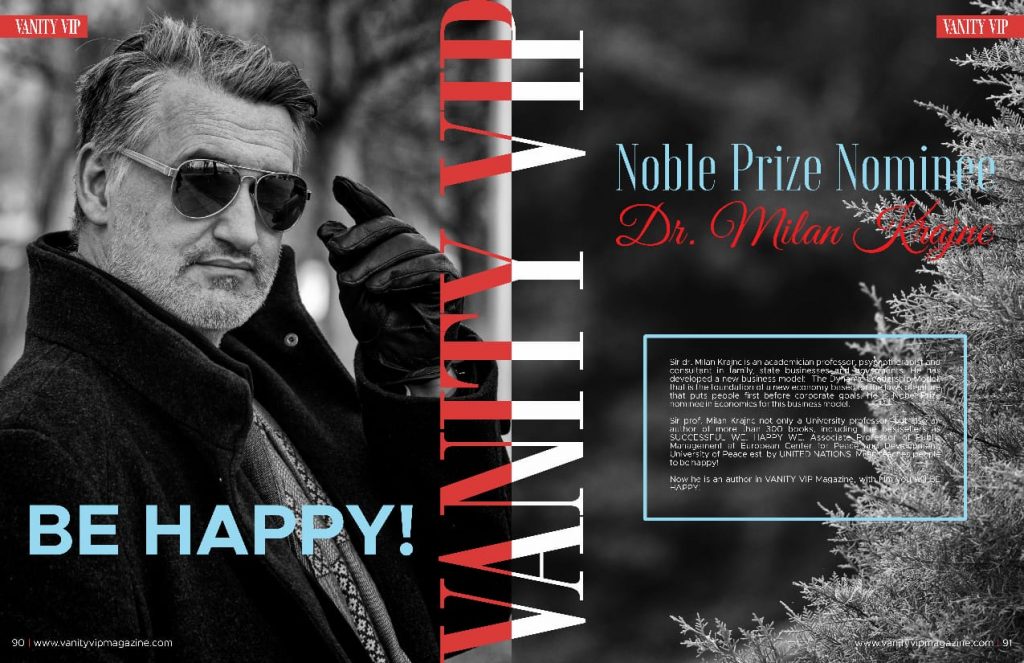
When I finished reality therapy studies and was in the middle of transactional analysis studies, I discovered in even more detail how the human conscious and subconscious mind—human psychology works. It quickly became clear to me that if you want to change a habit, you have to make a firm decision and stick to it no matter what. But, how to achieve that? Although I had been surrounded by psychology for several years, I was still thinking like a technician. A technician always looks for ultimate solutions, and I was certain there had to be some procedures and precise parameters. But I could not find them anywhere. Yes, they taught us a clearly defined system of how to conduct a conversation as a psychotherapist, however, it was based on developing own experience. Psychotherapy is building a relationship and healing through that relationship. Yet, I was thinking: a psychotherapist would need a certain map so as not to get lost.
Thus, my psychotherapeutic brain itself began to look for a technical solution on how a person makes a decision and by doing so makes a radical change.
Since I already had some experience with almost five hundred clients, I browsed through my notes to study the changes in their behavior. I also observed new clients, what method I was guiding them by, what was happening to them, how much time they needed for a change… I realized that certain things could be very clearly —technically—defined. In fact, in the background of a conversation between the client and the psychotherapist there is advanced mathematics, however, without us being aware of it.
This is how I found the seven steps of transformation in nature and applied them to psychotherapy. I began to realize that clients also behaved like matter/element or energy in a particular phase. Their steps and behavior were very similar. When I brought them to the end of the process of change and transformation—they transitioned into a new state, clients became different—as if the previous state had never existed. In fact, they could not believe that they actually had that problem. Nor could they ever again return to their previous state.
In internal development, the quantum leap is the moment we notice in ourselves a deep and final shift in emotions and behavior. And then we realize that something has changed forever.
An external observer could just as well say that these clients simply made a decision. However, it is exactly decision making that is crucial to a person’s life. We make 35,000 decisions every day. That means that we go through the mentioned seven steps 35,000 times a day without even being aware of it.
Occasionally, it happens that we skip one of the seven phases and consequently get stuck in a place. We then get the feeling that we are spinning in circles, which can take years. This is where a psychotherapist can help us get out of that vicious circle.
Based on all the acquired observations and good knowledge of natural phenomena, I developed a method that I named the Sirius Personal Transformation.
I will not describe the individual phases more specifically as they are already described in great detail on 1000 pages of the book titled Me. If you prefer, you can learn about and experience them also in a 75-hour training. For more information please visit www.dynamicleadership.management/.
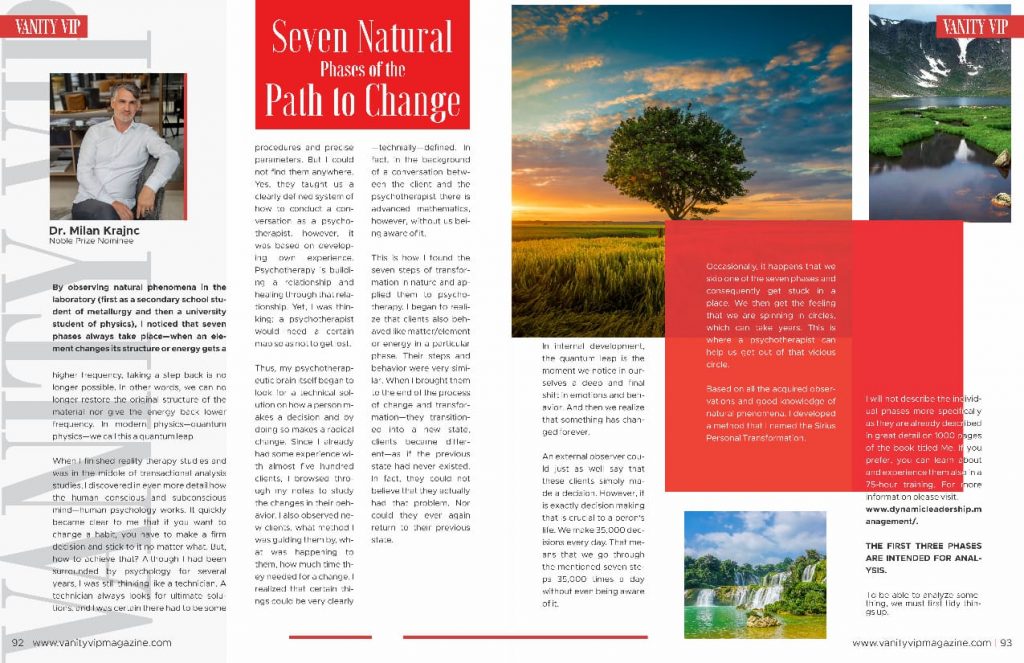
To be able to analyze something, we must first tidy things up. However, that is only the first phase. It is only after we tidy up the things that we see where we are and what it is that we actually need.
Then, in the second phase, we remove everything that is not ours, what we consider no longer belonging to us. In life, we experience it as a salvation, a relief, we get the feeling of having experienced enlightenment. But in fact, we only made room for fresh energy. If we do not quickly take a few steps forward at that stage, our burden will become greater than the one we have borne until then.
This is why, in the third phase, we need to think about what brought us to this point and what we want, how to now fill that free space, but it could also be that free space itself is enough for us on its own. It is important that we arrange all remaining things so that we have the feeling of being in balance.
However, the feeling of excitement begins to disappear and is replaced by the feeling of anxiety… We start thinking about how much time, energy, money… we have lost… In this, we say things like what was I thinking, I was so blind… and similar cries of remorse.
That is why we must never stop in the third phase, in which we also finalize the analysis…
Where do we want to go next, but based on the new feelings and new knowledge about ourselves? Anxiety is still present in this phase, and there is also guilt because we feel we are betraying someone by moving on. That is why intensive physical activity is necessary for the body and brain to get enough oxygen for us to cope with the psychological efforts more easily. Although we are slowly setting ourselves a new path, the energy of old habits is still very present and keeps pulling us back, and this is why we must have good stamina so we do not succumb to all those voices persuading us to quit.
This is where we usually change the people we socialize with… and almost everything that hinders us in expressing our own will. It of course depends on the degree of transformation we are in and the area in which we perform the transformation. While we might be making a minor change, such as quitting smoking, by doing so we are actually addressing 100 other subconscious setbacks. The fifth phase is most intense, but in it we already start feeling relief, despite having the feeling that there is a storm around us.
In this phase, we say that there is sunshine after the rain, since we start laying down the path towards the desired feelings. At this point, the calls from the past can barely be heard. In a way, we are already treading the new path.
In the last phase, the new path has almost entirely become a part of our life, and we lose the feeling that we have changed something, even though the surroundings tell us how different we are. We often do not notice these changes ourselves because we are in the centre of the happening, while the people around us see a significant change. We feel the changes much earlier, but when we calm down completely in the final phase, we do not know anymore what it was even about, although it happened yesterday.
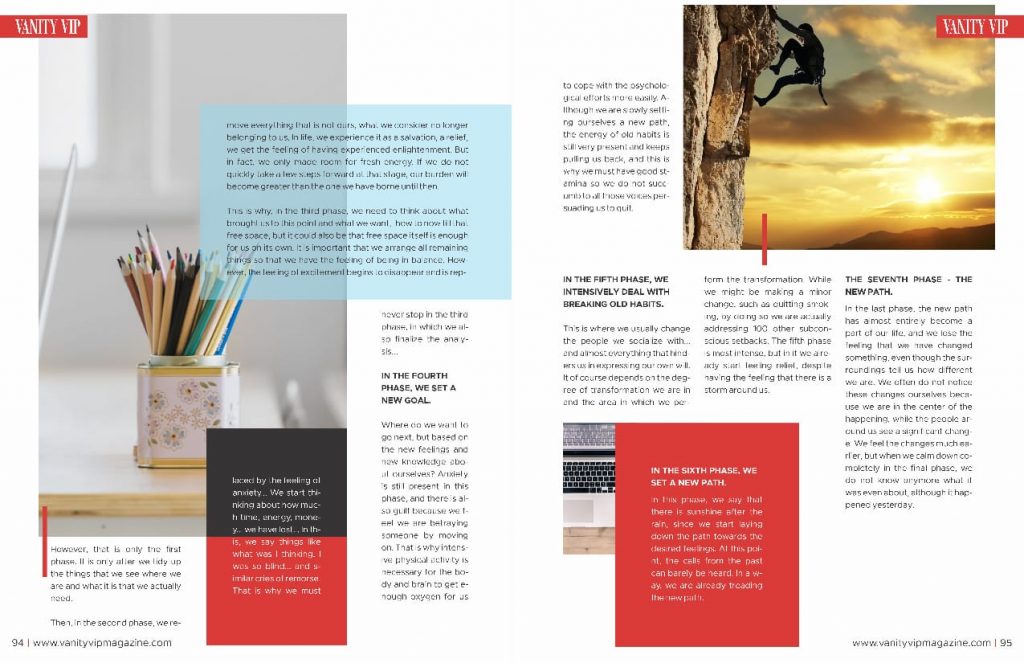
Sir Dr. Milan Krajnc is an academician professor, psychotherapist and consultant in family, state businesses and goverments. He has developed a new business model: The Dynamic Leadership Model, that is the foundation of a new economy based on the laws of nature that puts people first before corporate goals. He is Nobel Prize nominee in Economics for this business model.
Sir prof. Milan Krajnc not only a University professor, but also an author of more than 300 books, including the bestsellers as SUCCESSFUL WE, HAPPY WE. Associate Professor of Public Management at European Center for Peace and Development, University of Peace est. by UNITED NATIONS. Milan teaches people to be happy!
Now he is an author in VANITY VIP Magazine, with him you will BE HAPPY!
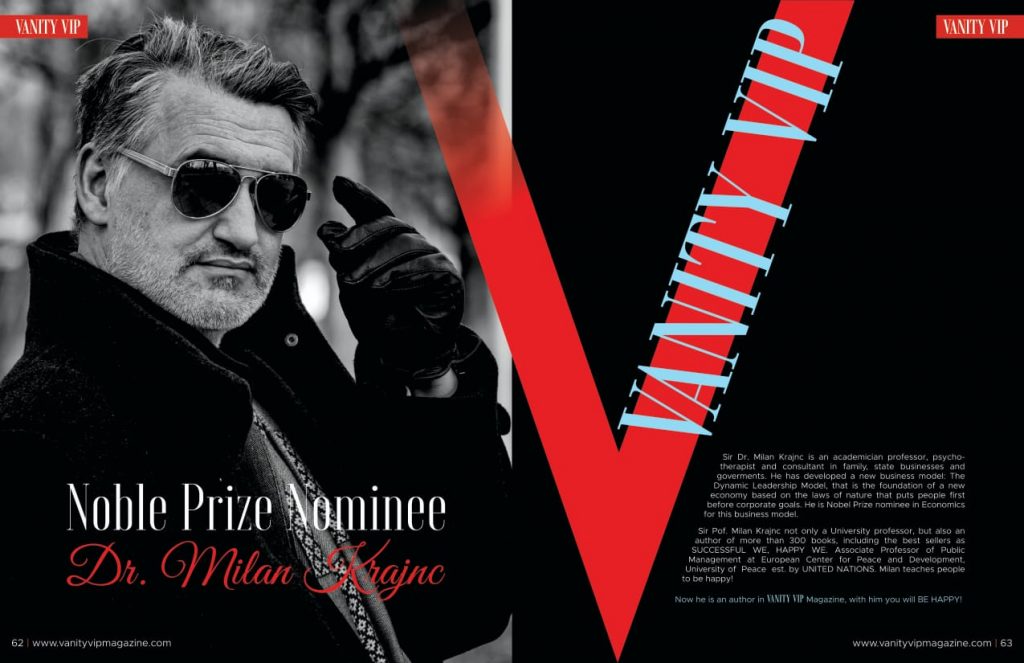
Through my life stories and professional knowledge I will try to demonstrate what it really means to be successful, how to become successful and what the right time for that is.
As a scientist, researcher, writer, psychotherapist and an entrepreneur, I have been dealing with the successes of other entrepreneurs for 20 years. Above all, I am interested in why they are successful, what all influences their decisions and how they think. In fact, I have always been interested in the mindset of winners. I largely compared them to athletes. And what is most important that I discovered was that success is a burden to someone and a delight to others. In reality, I did not understand that at first. It became clear to me only after I had conducted a series of interviews with the most successful entrepreneurs who were awarded the highest prizes in their area of expertise, only to then slowly disappear from the entrepreneurial world. I have analysed more than 20 such winners.
What interested me most was why these winners were no longer engaged in entrepreneurship, considering they had already achieved the highest success in their industry.
And they had even received the most prestigious award?!
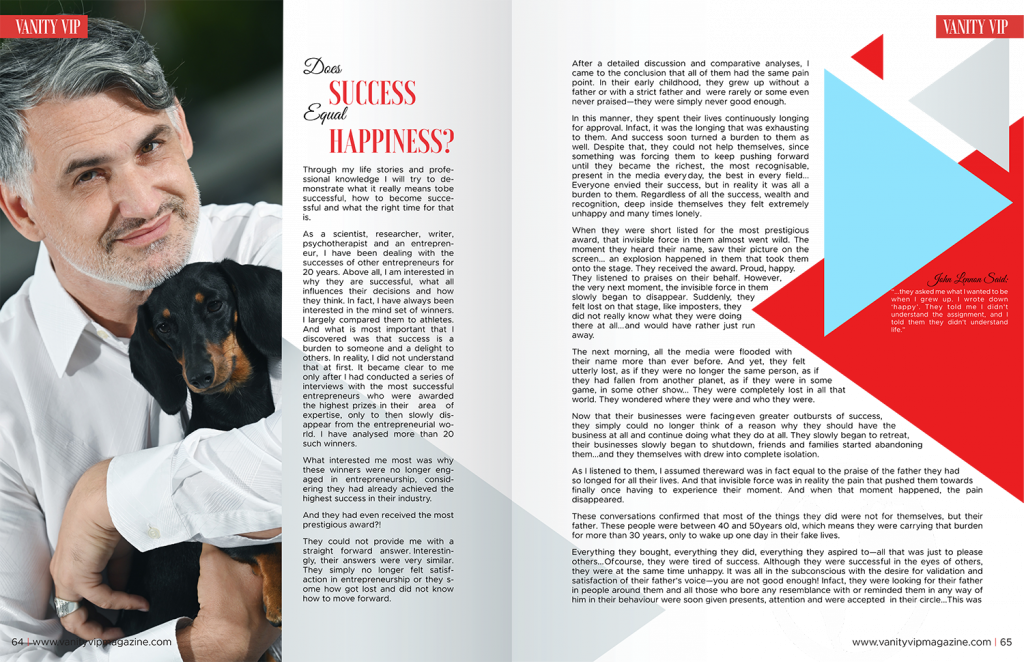
They could not provide me with a straightforward answer. Interestingly, their answers were very similar. They simply no longer felt satisfaction in entrepreneurship or they somehow got lost and did not know how to move forward.
After a detailed discussion and comparative analyses, I came to the conclusion that all of them had the same pain point. In their early childhood, they grew up without a father or with a strict father and were rarely or some even never praised—they were simply never good enough.
In this manner, they spent their lives continuously longing for approval. In fact, it was the longing that was exhausting to them. And success soon turned a burden to them as well. Despite that, they could not help themselves, since something was forcing them to keep pushing forward until they became the richest, the most recognisable, present in the media every day, the best in every field… Everyone envied their success, but in reality it was all a burden to them. Regardless of all the success, wealth and recognition, deep inside themselves they felt extremely unhappy and many times lonely.
When they were shortlisted for the most prestigious award, that invisible force in them almost went wild. The moment they heard their name, saw their picture on the screen… an explosion happened in them that took them onto the stage. They received the award. Proud, happy. They listened to praises on their behalf. However, the very next moment, the invisible force in them slowly began to disappear. Suddenly, they felt lost on that stage, like imposters, they did not really know what they were doing there at all… and would have rather just run away.
The next morning, all the media were flooded with their name more than ever before. And yet, they felt utterly lost, as if they were no longer the same person, as if they had fallen from another planet, as if they were in some game, in some other show… They were completely lost in all that world. They wondered where they were and who they were.
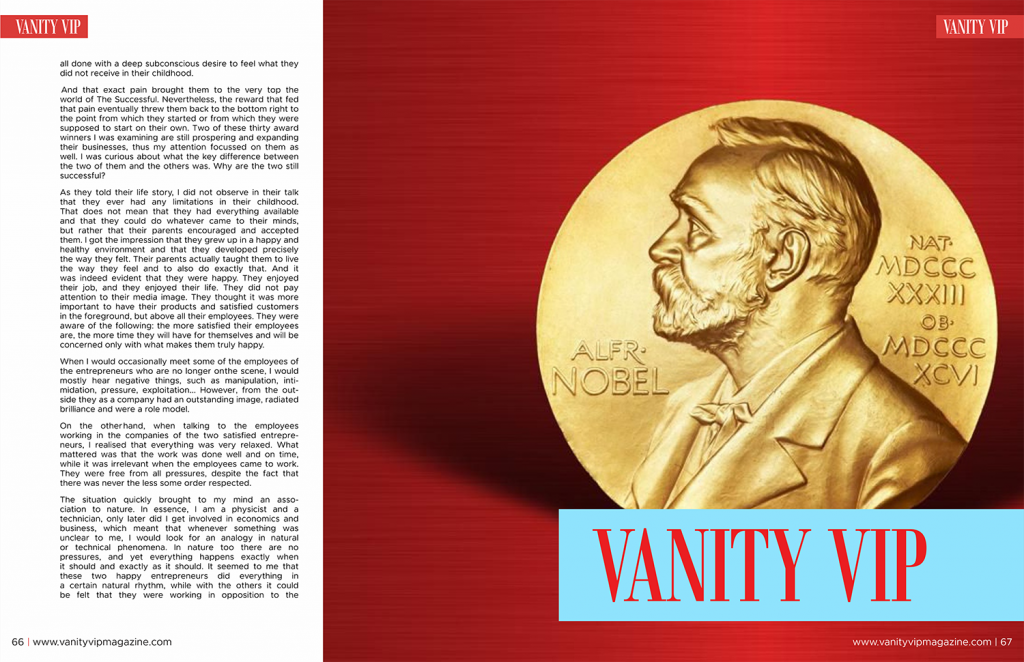
Now that their businesses were facing even greater outbursts of success, they simply could no longer think of a reason why they should have the business at all and continue doing what they do at all. They slowly began to retreat, their businesses slowly began to shut down, friends and families started abandoning them… and they themselves withdrew into complete isolation.
As I listened to them, I assumed the reward was in fact equal to the praise of the father they had so longed for all their lives. And that invisible force was in reality the pain that pushed them towards finally once having to experience their moment. And when that moment happened, the pain disappeared.
These conversations confirmed that most of the things they did were not for themselves, but their father. These people were between 40 and 50 years old, which means they were carrying that burden for more than 30 years, only to wake up one day in their fake lives.
Everything they bought, everything they did, everything they aspired to—all that was just to please others… Of course, they were tired of success. Although they were successful in the eyes of others, they were at the same time unhappy. It was all in the subconscious with the desire for validation and satisfaction of their father’s voice—you are not good enough! In fact, they were looking for their father in people around them and all those who bore any resemblance with or reminded them in any way of him in their behaviour were soon given presents, attention and were accepted in their circle… This was all done with a deep subconscious desire to feel what they did not receive in their childhood. And that exact pain brought them to the very top of the world of The Successful. Nevertheless, the reward that fed that pain eventually threw them back to the bottom right to the point from which they started or from which they were supposed to start on their own.
Two of these thirty award winners I was examining are still prospering and expanding their businesses, thus my attention focused on them as well. I was curious about what the key difference between the two of them and the others was. Why are the two still successful?
As they told their life story, I did not observe in their talk that they ever had any limitations in their childhood. That does not mean that they had everything available and that they could do whatever came to their minds, but rather that their parents encouraged and accepted them. I got the impression that they grew up in a happy and healthy environment and that they developed precisely the way they felt. Their parents actually taught them to live the way they feel and to also do exactly that.
And it was indeed evident that they were happy. They enjoyed their job, and they enjoyed their life. They did not pay attention to their media image. They thought it was more important to have their products and satisfied customers in the foreground, but above all their employees. They were aware of the following: the more satisfied their employees are, the more time they will have for themselves and will be concerned only with what makes them truly happy.
When I would occasionally meet some of the employees of the entrepreneurs who are no longer on the scene, I would mostly hear negative things, such as manipulation, intimidation, pressure, exploitation… However, from the outside they as a company had an outstanding image, radiated brilliance and were a role model.
On the other hand, when talking to the employees working in the companies of the two satisfied entrepreneurs, I realised that everything was very relaxed. What mattered was that the work was done well and on time, while it was irrelevant when the employees came to work. They were free from all pressures, despite the fact that there was nevertheless some order respected.
The situation quickly brought to my mind an association to nature. In essence, I am a physicist and a technician, only later did I get involved in economics and business, which meant that whenever something was unclear to me, I would look for an analogy in natural or technical phenomena. In nature too there are no pressures, and yet everything happens exactly when it should and exactly as it should. It seemed to me that these two happy entrepreneurs did everything in a certain natural rhythm, while with the others it could be felt that they were working in opposition to the ease of nature, which is why ultimately everything under them fell apart.
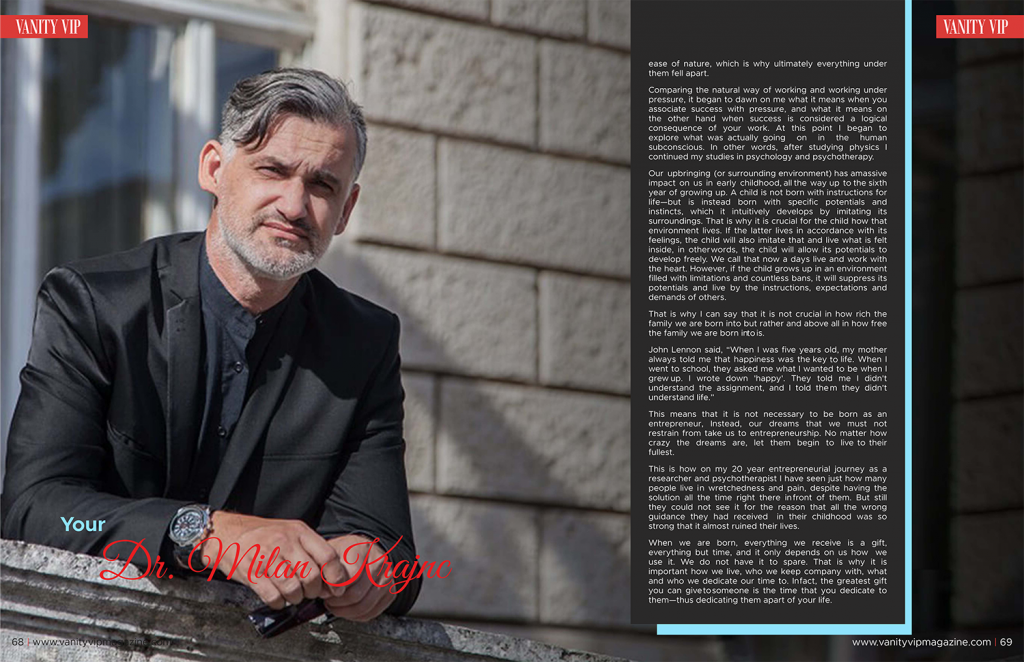
Comparing the natural way of working and working under pressure, it began to dawn on me what it means when you associate success with pressure, and what it means on the other hand when success is considered a logical consequence of your work. At this point I began to explore what was actually going on in the human subconscious. In other words, after studying physics, I continued my studies in psychology and psychotherapy.
Our upbringing (or surrounding environment) has a massive impact on us in early childhood, all the way up to the sixth year of growing up. A child is not born with instructions for life—but is instead born with specific potentials and instincts, which it intuitively develops by imitating its surroundings. That is why it is crucial for the child how that environment lives. If the latter lives in accordance with its feelings, the child will also imitate that and live what is felt inside, in other words, the child will allow its potentials to develop freely. We call that nowadays live and work with the heart. However, if the child grows up in an environment filled with limitations and countless bans, it will suppress its potentials and live by the instructions, expectations and demands of others.
That is why I can say that it is not crucial in how rich the family we are born into but rather and above all in how free the family we are born into is.
John Lennon said, “When I was five years old, my mother always told me that happiness was the key to life. When I went to school, they asked me what I wanted to be when I grew up. I wrote down ‘happy’. They told me I didn’t understand the assignment, and I told them they didn’t understand life.”
This means that it is not necessary to be born as an entrepreneur, Instead, our dreams that we must not restrain from take us to entrepreneurship. No matter how crazy the dreams are, let them begin to live to their fullest.
This is how on my 20-year entrepreneurial journey as a researcher and psychotherapist I have seen just how many people live in wretchedness and pain, despite having the solution all the time right there in front of them. But still they could not see it for the reason that all the wrong guidance they had received in their childhood was so strong that it almost ruined their lives.
When we are born, everything we receive is a gift, everything but time, and it only depends on us how we use it. We do not have it to spare. That is why it is important how we live, who we keep company with, what and who we dedicate our time to. In fact, the greatest gift you can give to someone is the time that you dedicate to them—thus dedicating them a part of your life.
We hope meeting with a perspective young psychologist will help us figure this out. Mariia Lavreniuk began her journey into the world of psychology at the Lesya Ukrainka European National University, which has produced excellent specialists for decades.
Mariia found interest in other people, a genuine desire and passion to help others and to study human nature intrigued her from early beginnings. Whilst studying and participation in various student conferences convinced her that psychology was the right choice. Even during her studies, Mariia stood out against her peers by her sociability, openness, and the desire to know the essence of mankind.
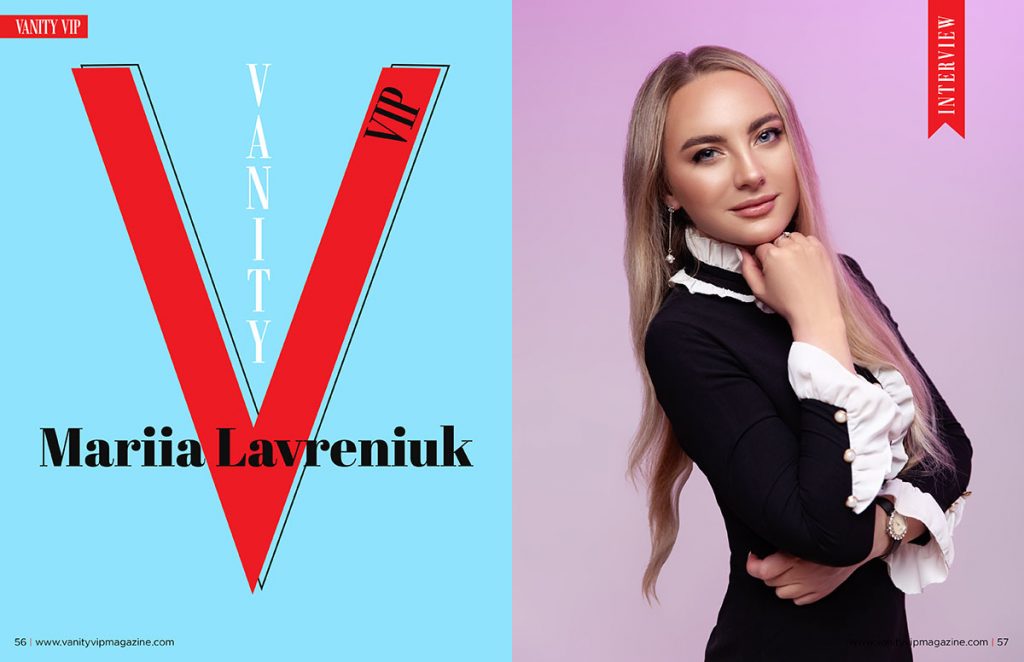
Therefore, it is natural that the basis of the topic of her scientific research and close study was precisely interpersonal relations, as well as questions about self-development and communication. Mariia began her career as a student. Initially it was from consultations with boys and girls, then trainings with groups of women and men. The first indicators of success for Mariia were the recommendations of current and her former clients. It certainly created enhanced motivation from these early successes to enhance work and develop new skills.
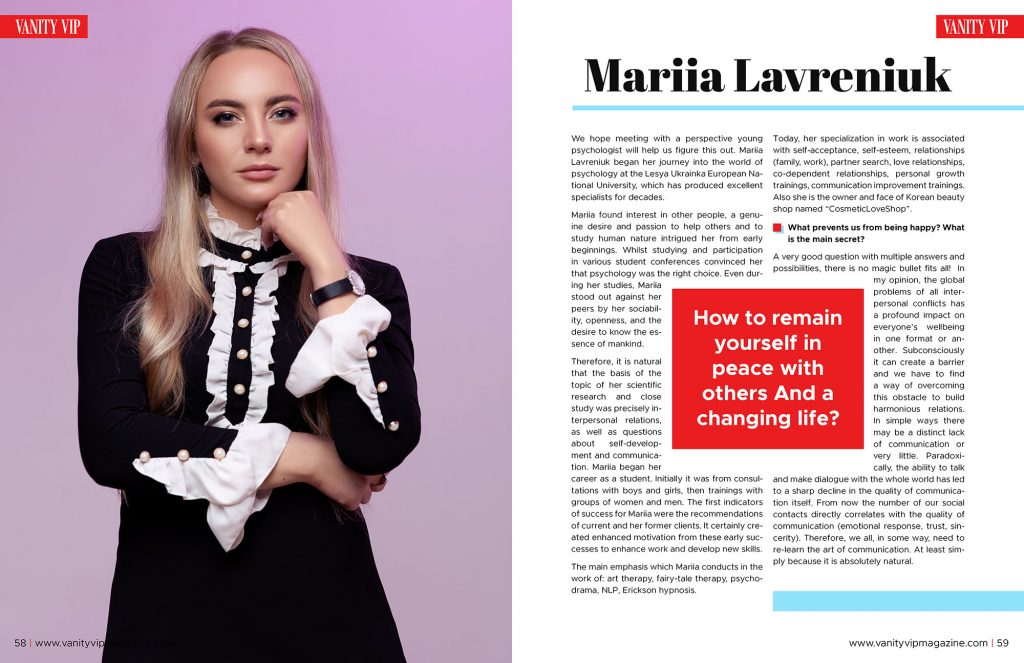
The main emphasis which Mariia conducts in the work of: art therapy, fairy-tale therapy, psychodrama, NLP, Erickson hypnosis.
Today, her specialization in work is associated with self-acceptance, self-esteem, relationships (family, work), partner search, love relationships, co-dependent relationships, personal growth trainings, communication improvement trainings. Also she is the owner and face of Korean beauty shop named “CosmeticLoveShop”.
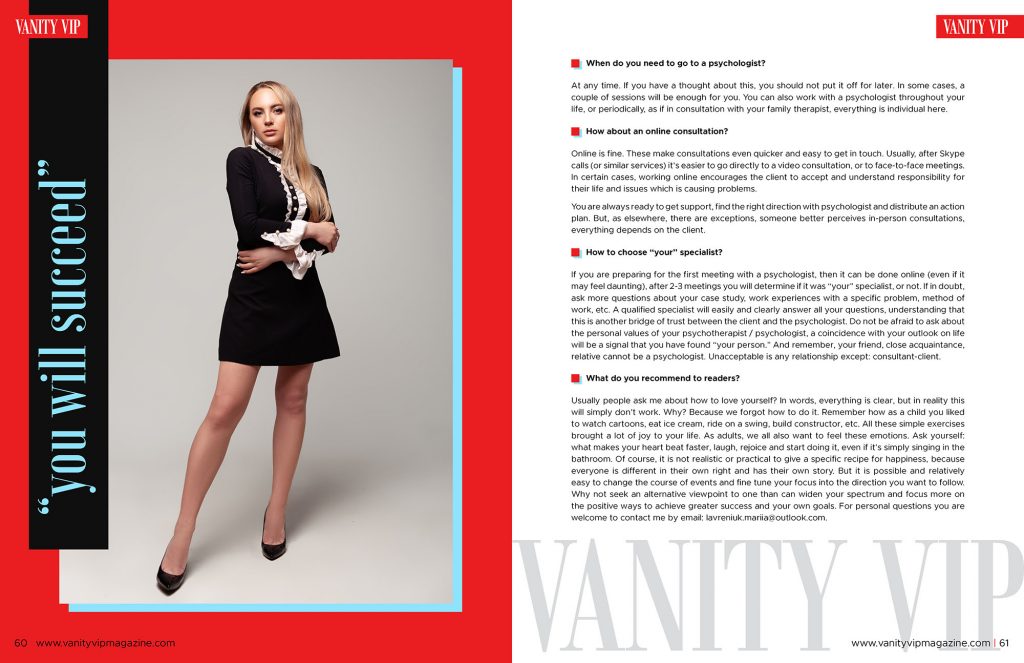
A very good question with multiple answers and possibilities, there is no magic bullet fits all! In my opinion, the global problems of all interpersonal conflicts has a profound impact on everyone’s wellbeing in one format or another. Subconsciously it can create a barrier and we have to find a way of overcoming this obstacle to build harmonious relations. In simple ways there may be a distinct lack of communication or very little. Paradoxically, the ability to talk and make dialogue with the whole world has led to a sharp decline in the quality of communication itself. From now the number of our social contacts directly correlates with the quality of communication (emotional response, trust, sincerity). Therefore, we all, in some way, need to re-learn the art of communication. At least simply because it is absolutely natural.
The most important point is the actual formulation and construction of a working action, it is the process of building trust and creating a genuine sense of acceptance with the client. Of course, this happens in different ways for everyone. As each person is unique and different this can take more time, so no two scenarios are the same. It can be as little as 2-3 meetings before someone is absolutely calm and is prepared to willingly speak on any topic. Sometimes, group meetings provide an opportunity to seriously speed up the consultation process. A person, seeing many people with a similar problem, feels more confident. The support of “friends in misfortune” provides a powerful resource for progress
At any time. If you have a thought about this, you should not put it off for later. In some cases, a couple of sessions will be enough for you. You can also work with a psychologist throughout your life, or periodically, as if in consultation with your family therapist, everything is individual here.
Online is fine. These make consultations even quicker and easy to get in touch. Usually, after Skype calls (or similar services) it’s easier to go directly to a video consultation, or to face-to-face meetings. In certain cases, working online encourages the client to accept and understand responsibility for their life and issues which is causing problems.
You are always ready to get support, find the right direction with psychologist and distribute an action plan. But, as elsewhere, there are exceptions, someone better perceives in-person consultations, everything depends on the client.
If you are preparing for the first meeting with a psychologist, then it can be done online (even if it may feel daunting), after 2-3 meetings you will determine if it was “your” specialist, or not. If in doubt, ask more questions about your case study, work experiences with a specific problem, method of work, etc. A qualified specialist will easily and clearly answer all your questions, understanding that this is another bridge of trust between the client and the psychologist. Do not be afraid to ask about the personal values of your psychotherapist / psychologist, a coincidence with your outlook on life will be a signal that you have found “your person.” And remember, your friend, close acquaintance, relative cannot be a psychologist. Unacceptable is any relationship except: consultant-client.
Usually people ask me about how to love yourself? In words, everything is clear, but in reality this will simply don’t work. Why? Because we forgot how to do it. Remember how as a child you liked to watch cartoons, eat ice cream, ride on a swing, build constructor, etc. All these simple exercises brought a lot of joy to your life. As adults, we all also want to feel these emotions. Ask yourself: what makes your heart beat faster, laugh, rejoice and start doing it, even if it’s simply singing in the bathroom. Of course, it is not realistic or practical to give a specific recipe for happiness, because everyone is different in their own right and has their own story. But it is possible and relatively easy to change the course of events and fine tune your focus into the direction you want to follow. Why not seek an alternative viewpoint to one than can widen your spectrum and focus more on the positive ways to achieve greater success and your own goals. For personal questions you are welcome to contact me by email: lavreniuk.mariia@outlook.com.

“you will succeed”

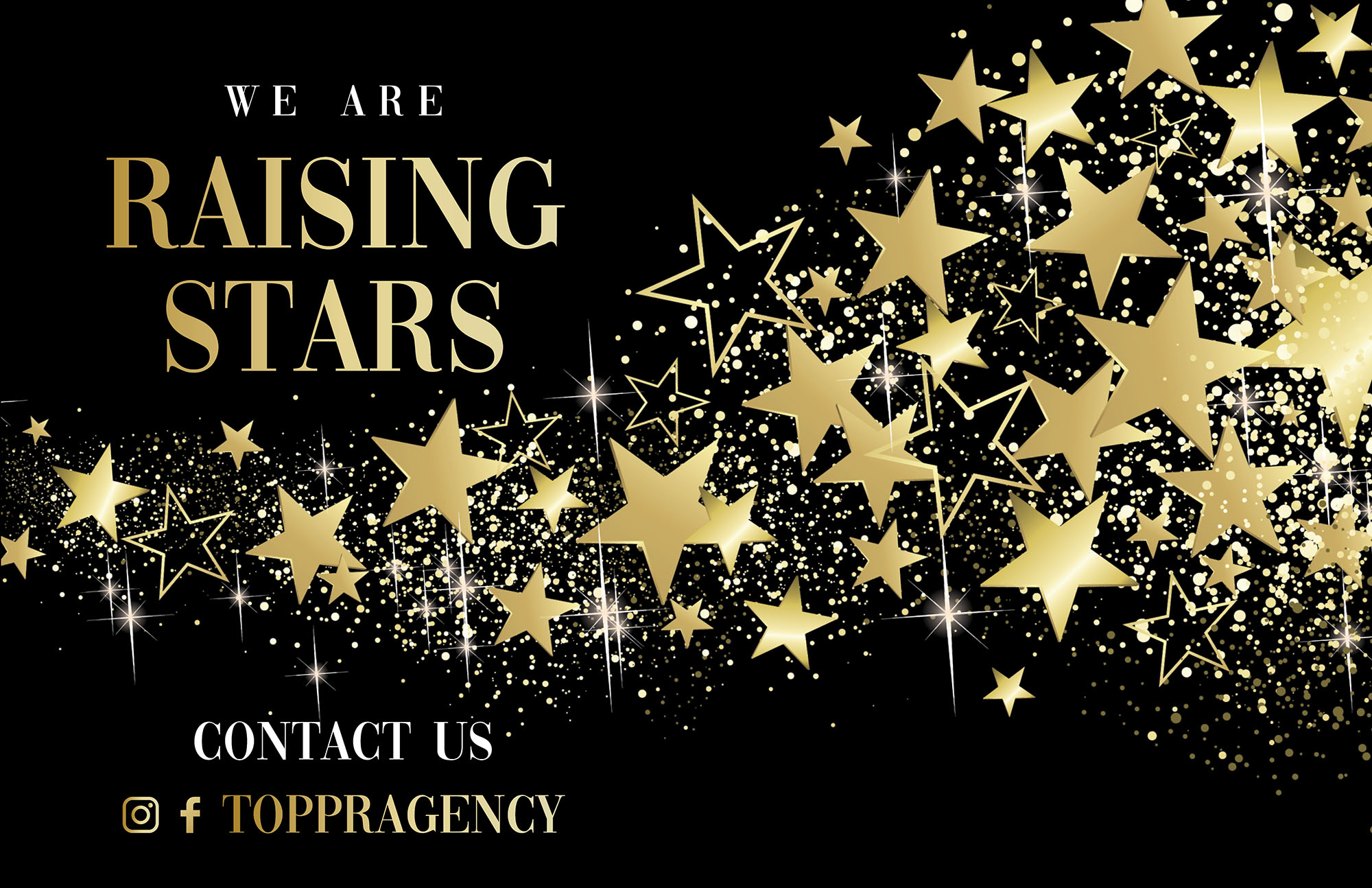

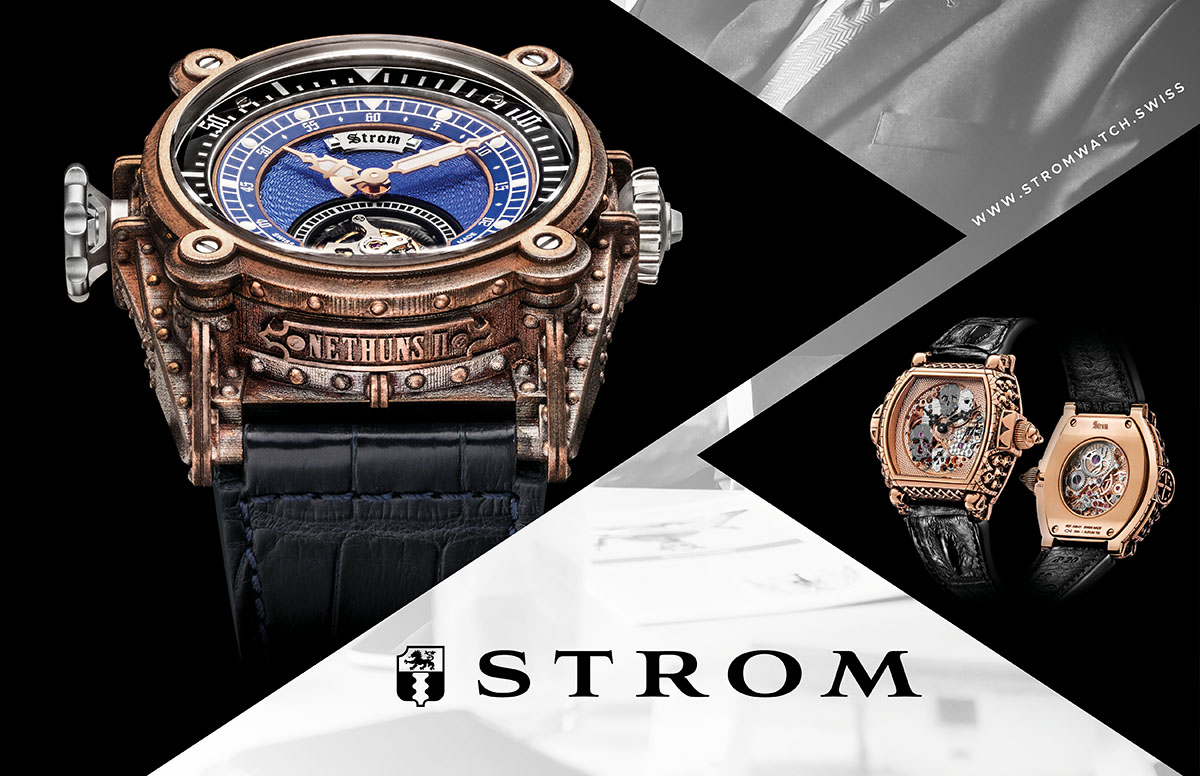
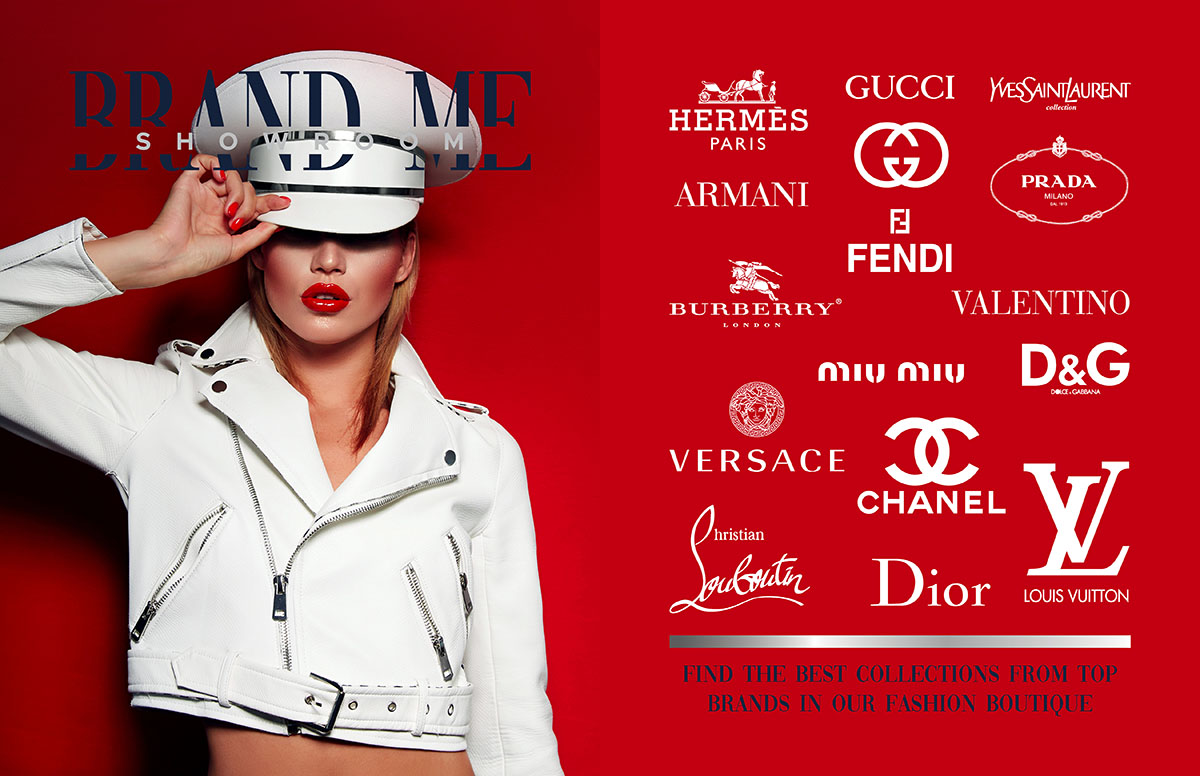
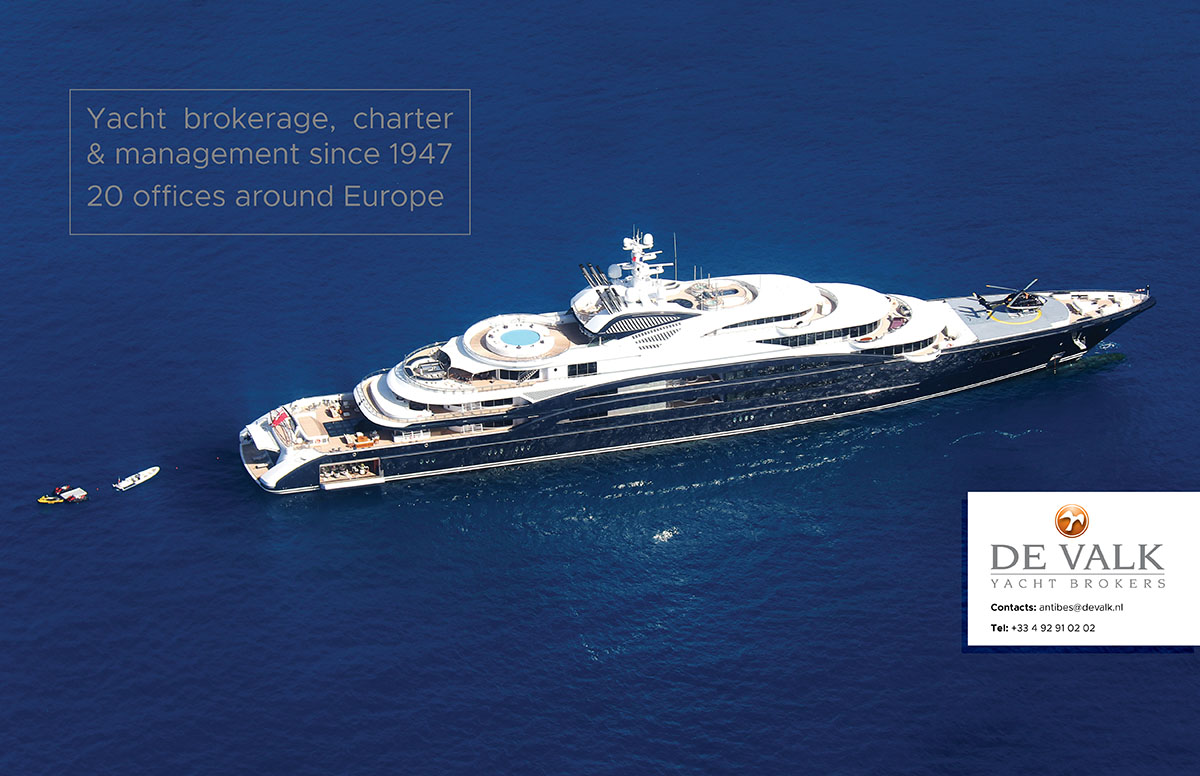


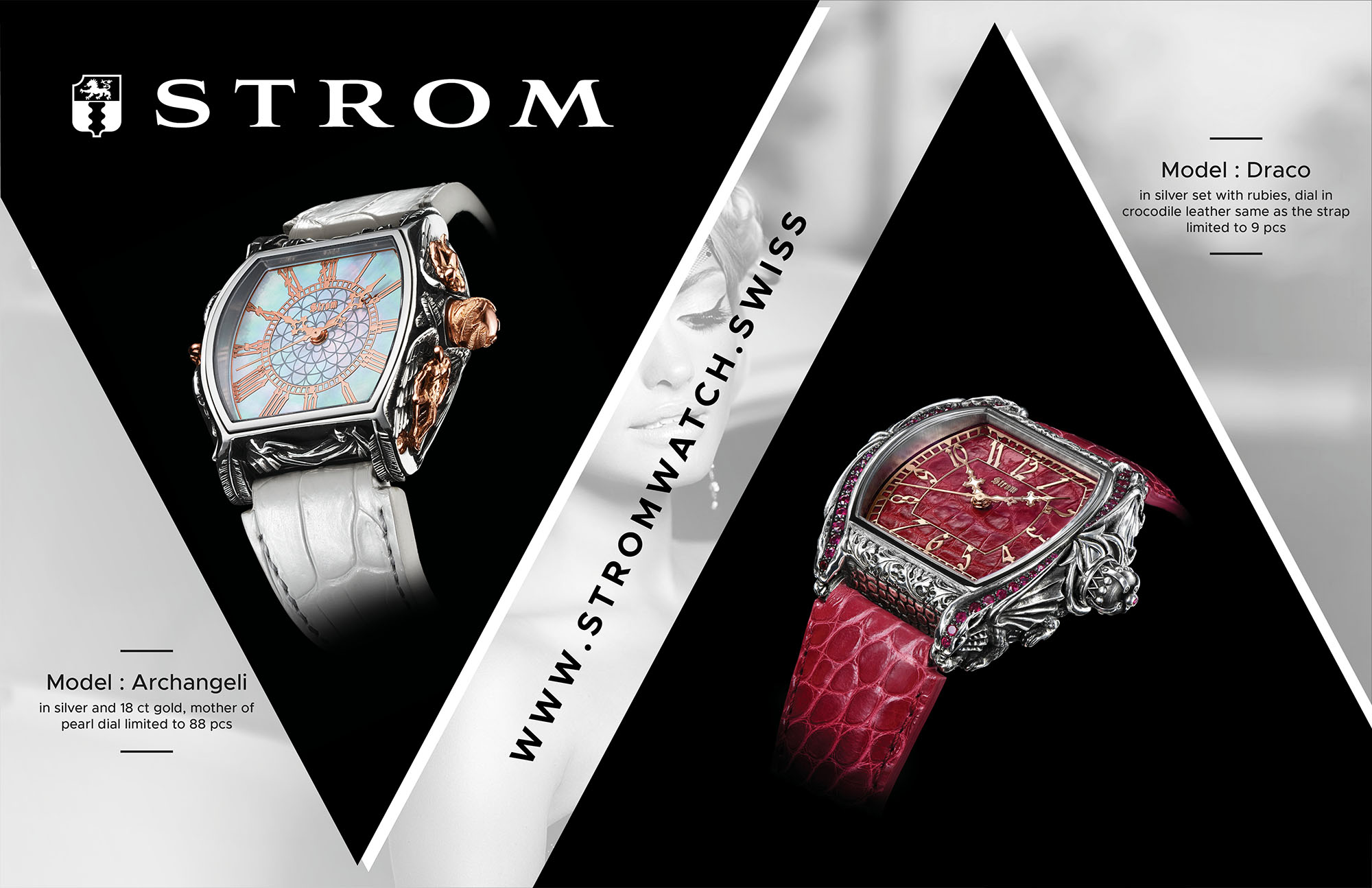


Copyright © 2025 VANITY VIP Magazine. All rights reserved
We use cookies to improve your experience on our site. By using our site, you consent to cookies.
Manage your cookie preferences below:
Essential cookies enable basic functions and are necessary for the proper function of the website.
These cookies are needed for adding comments on this website.